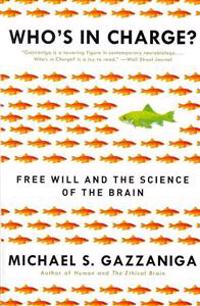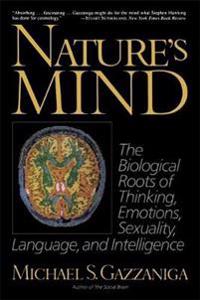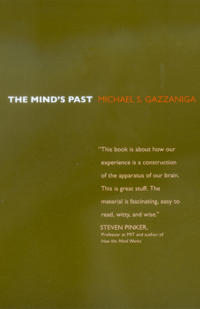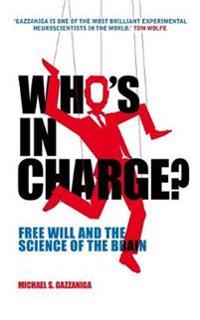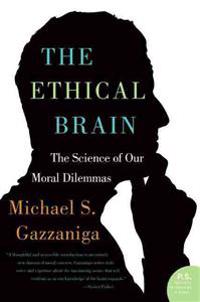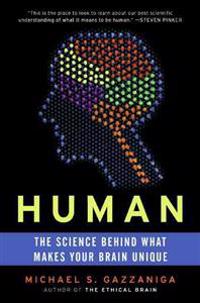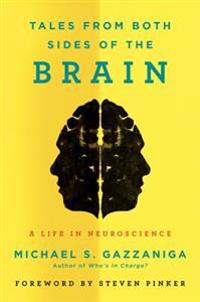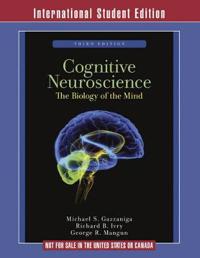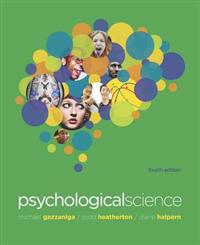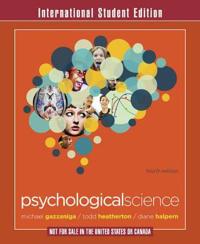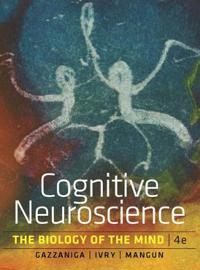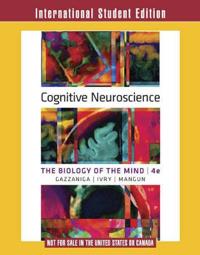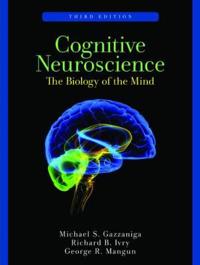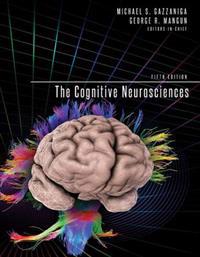Who's in Charge?: Free Will and the Science of the Brain (Häftad)
avMichael S. Gazzaniga
ISBN: 9780061906114 - UTGIVEN: 201209There is no "you" consciously making decisions. So how do we make decisions? How can we have free will if we don't pull the levers on our own behavior? What moral and legal implications follow if we don't have free will? Who's in Charge? is a primer for a new era in the understanding of human behavi[...]
Nature's Mind (Häftad)
avMichael S. Gazzaniga
ISBN: 9780465048632 - UTGIVEN: 199403The co-discoverer of the split brain theory tells how science is recasting the age-old question of nature versus nurture to create a startling new view of human behavior. Recent discoveries suggest that natural selection affects not only physical characteristics but also mental processes, from learn[...]
The Mind's Past (Häftad)
avMichael S. Gazzaniga
ISBN: 9780520224865 - UTGIVEN: 200010Why does the human brain insist on interpreting the world and constructing a narrative? In this ground-breaking work, Michael S. Gazzaniga, one of the world's foremost cognitive neuroscientists, shows how our mind and brain accomplish the amazing feat of constructing our past - a process clearly fra[...]
Who's in Charge? (Häftad)
avMichael S. Gazzaniga
ISBN: 9781780337753 - UTGIVEN: 201204The prevailing orthodoxy in brain science is that since physical laws govern our physical brains, physical laws therefore govern our behaviour and even our conscious selves. Free will is meaningless, goes the mantra; we live in a "determined" world. Not so, argues the renowned neuroscientist Michael[...]
The Ethical Brain: The Science of Our Moral Dilemmas (Häftad)
avMichael S. Gazzaniga
ISBN: 9780060884734 - UTGIVEN: 200605A provocative and fascinating look at new discoveries about the brain that challenge our ethicsThe rapid advance of scientific knowledge has raised ethical dilemmas that humankind has never before had to address. Questions about the moment when life technically begins and ends or about the morality [...]
Human: The Science Behind What Makes Us Unique (Inbunden)
avMichael S. Gazzaniga
ISBN: 9780060892883 - UTGIVEN: 2008-06One of the world's leading neuroscientists explores how best to understand the human condition by examining the biological, psychological, and highly social nature of our species within the social context of our lives.What happened along the evolutionary trail that made humans so unique? In his wide[...]
Human: The Science Behind What Makes Your Brain Unique (Häftad)
avMichael S. Gazzaniga
ISBN: 9780060892890 - UTGIVEN: 200906What happened along the evolutionary trail that made humans so unique? In his accessible style, Michael Gazzaniga pinpoints the change that made us thinking, sentient humans different from our predecessors. He explores what makes human brains special, the importance of language and art in defining t[...]
Tales from Both Sides of the Brain: A Life in Neuroscience (Inbunden)
avMichael S. Gazzaniga
ISBN: 9780062228802 - UTGIVEN: 2015-01Michael S. Gazzaniga, "the father of cognitive neuroscience," gives us an exciting behind-the-scenes look at his seminal work on the enigmatic coupling of the right and left brainIn the mid-twentieth century, Michael S. Gazzaniga made one of the great discoveries in the history of neuroscience: spli[...]
Cognitive Neuroscience (Häftad)
avMichael S. Gazzaniga, Geoffrey Davies, Richard B. Ivry
ISBN: 9780393111361 - UTGIVEN: 200809Three leading figures in the field of cognitive neuroscience provide an engaging, narrative-driven overview of this path-breaking field. Taking a highly interdisciplinary approach, the authors balance cognitive theory, with neuroscientific and neuropsychological evidence to reveal what we currently [...]
Psychological Science (Inbunden)
avMichael S. Gazzaniga, Todd F. Heatherton, Diane F. Halpern
ISBN: 9780393911572 - UTGIVEN: 2011-12The authors introduce students to the fundamentals of psychology and the latest cutting-edge research through a pedagogical framework designed to keep students engaged, motivated, and learning actively. Pedagogy based on the science of learning encourages time-on-task while facilitating long-term re[...]
Psychological Science (Häftad)
avMichael S. Gazzaniga, Todd F. Heatherton, Diane F. Halpern
ISBN: 9780393913361 - UTGIVEN: 201203Major principles and contemporary themes drive this narrative overview of the field touching on the latest ideas and findings in biological, cognitive, social, developmental, personality, and clinical psychology. Gazzaniga and Heatherton provide the latest insights on a wide array of topics and issu[...]
Cognitive Neuroscience: The Biology of the Mind (Inbunden)
avMichael S. Gazzaniga, Richard B. Ivry, George R. Mangun
ISBN: 9780393913484 - UTGIVEN: 2013-10The first textbook for the course, and still the market leader, Cognitive Neuroscience has been thoroughly refreshed, rethought, and reorganized to enhance students' and instructors' experience. A stunning, all new art program conveys data and concepts clearly, and new chapter-opening Anatomical Ori[...]
Cognitive Neuroscience (Häftad)
avMichael S. Gazzaniga, Richard B. Ivry, George R. Mangun
ISBN: 9780393922288 - UTGIVEN: 2013-11Three leading figures in the field of cognitive neuroscience provide an engaging, narrative-driven overview of this path-breaking field. Taking a highly interdisciplinary approach, the authors balance cognitive theory, with neuroscientific and neuropsychological evidence to reveal what we currently [...]
Cognitive Neuroscience (Inbunden)
avMichael S. Gazzaniga, Richard B. Ivry, George R. Mangun
ISBN: 9780393927955 - UTGIVEN: 200807Taking a highly interdisciplinary approach, the authors balance cognitive theory, with neuroscientific and neuropsychological evidence to reveal what we currently know about how the human mind works and to encourage students to think like cognitive neuroscientists. The text has been reorganized to m[...]
Psychological Science: DSM-5 Update (Pocket)
avMichael S. Gazzaniga, Todd Heatherton, Diane F. Halpern
ISBN: 9780393937824 - UTGIVEN: 2014-01-07The Cognitive Neurosciences (Inbunden)
avMichael S. (EDT) Gazzaniga, George R. (EDT) Mangun, Michael S. (EDT) Gazzaniga
ISBN: 9780262027779 - UTGIVEN: 2014-11Each edition of this classic reference has proved to be a benchmark in the developing field of cognitive neuroscience. The fifth edition of The Cognitive Neurosciences continues to chart new directions in the study of the biological underpinnings of complex cognitio -- the relationship between the s[...]

